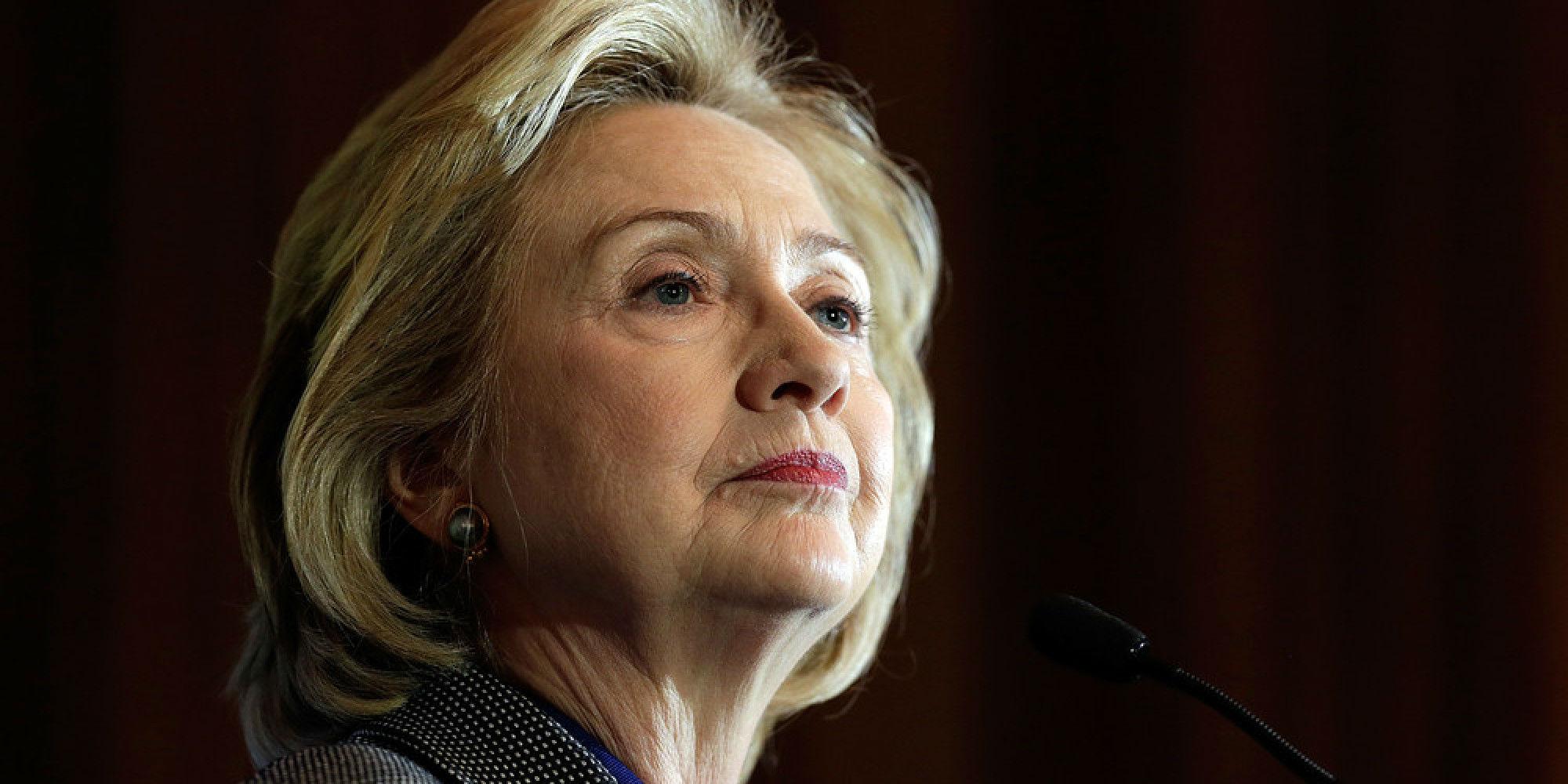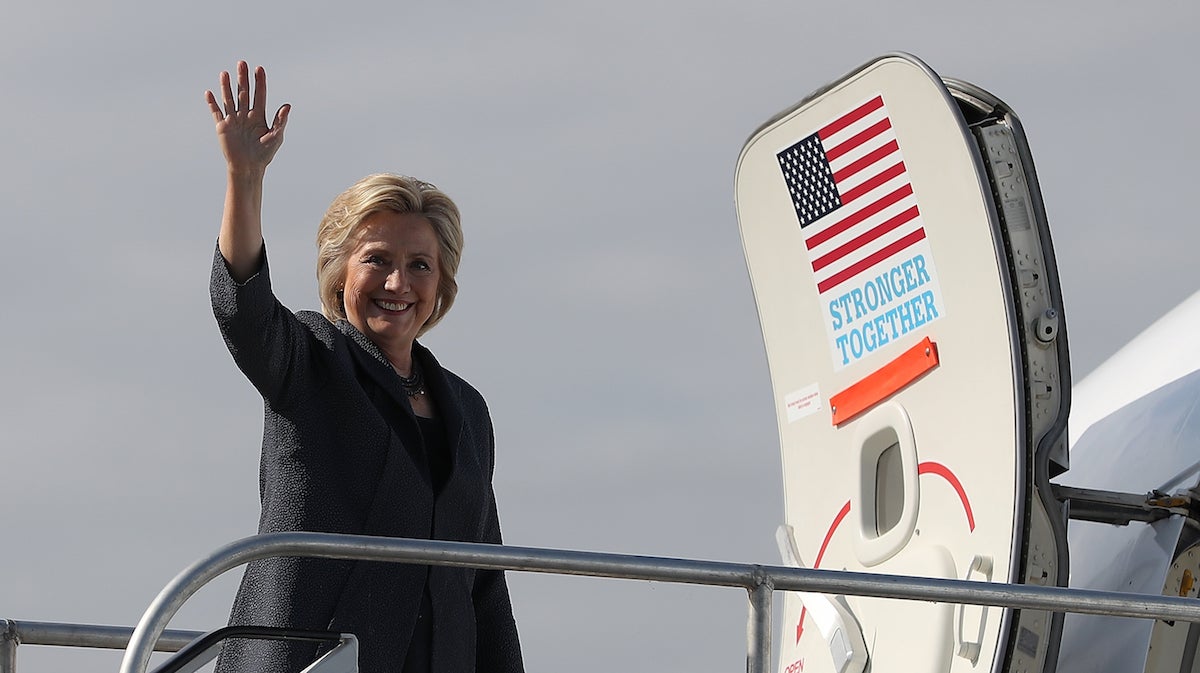Hillary Clinton: The global challenges that would confront America's first woman president
The former secretary of state may be the most qualified presidential candidate for a very long time

Your support helps us to tell the story
From reproductive rights to climate change to Big Tech, The Independent is on the ground when the story is developing. Whether it's investigating the financials of Elon Musk's pro-Trump PAC or producing our latest documentary, 'The A Word', which shines a light on the American women fighting for reproductive rights, we know how important it is to parse out the facts from the messaging.
At such a critical moment in US history, we need reporters on the ground. Your donation allows us to keep sending journalists to speak to both sides of the story.
The Independent is trusted by Americans across the entire political spectrum. And unlike many other quality news outlets, we choose not to lock Americans out of our reporting and analysis with paywalls. We believe quality journalism should be available to everyone, paid for by those who can afford it.
Your support makes all the difference.If she wins on November 8, Hillary Clinton will take office better schooled on national security and military matters than any White House occupant since the first President Bush. And, with her hawkish foreign affairs record, every sign is that she will seek to use her power forcefully.
As she learnt during her four years as Secretary of State – sometimes the hard way – America’s foreign policy is ultimately set and run by the president, especially in an era when Congress has largely abdicated from its constitutional role in decisions of war and peace.
The biggest problems facing her in January will be the ones that bedevil Barack Obama now. They range from the chaos in the Middle East in general and in war-racked Syria in particular to the expansionism of China in Asia, to handling a North Korea on the brink of possessing nuclear weapons that directly threaten the US.

And then there’s Russia. At the State Department, Ms Clinton vainly attempted a ‘reset’ of relations with Moscow. The effort was collapsing even before Vladimir Putin returned to Russia’s presidency in 2012. Today relations between the erstwhile superpower rivals have returned to a Cold-War chill, as a result of Russia’s encroachments in Ukraine and Syria, its pressure on Nato states in the Baltic region and Eastern Europe – and now the charges that Moscow is meddling in this US election, and almost certainly on the side of her rival Donald Trump.
Separate these confrontations may be, but most of them share a common thread: a perception among America’s adversaries that the cautious, supremely rational Obama is too ‘nice,’ that they can defy the US and it will just turn the other cheek. Under Hillary Clinton things could be rather different.
Formally and informally, she has been in the thick of foreign policy action for a quarter of a century. As a highly involved First Lady, she was a close observer, and private adviser to her husband, during the 1990s crises in Somalia, Haiti, Rwanda and the Balkans.
On Capitol Hill, she spent six years on the Senate Armed Services Committee (an unmistakeable sign, even then, of her White House ambitions), followed by four as America’s chief diplomat. On every topic, be it climate change, Isis or nuclear weapons strategy, she diligently read her briefs. She knows what she’s talking about – and her record as a hawk is incontrovertible.
Ms Clinton was a strong advocate of toppling Muammar Ghaddafi in Libya. She voted for invading Iraq in 2003, and for leaving a substantial residual American military presence there after the withdrawal of 2011. She favoured Mr Obama’s 2009 troop surge in Afghanistan. In Syria she called early on for the establishment of no-fly zones and for arming moderate anti-Assad rebels. In the last debate, she argued for arming the Kurds.
Or take North Korea and China. After a bloody Northern provocation against Sputh Korea in 2010, she was foremost among those in the Obama administration who wanted to send both countries an unmistakeable messge by despatching a US carrier group into the Yellow Sea which separates them.
The US had to “run it up the gut” Ms Clinton told her aides, according to The New York Times. The metaphor is from American football, a sport whose strategy is akin to real war. It means to stage a frontal challenge by running straight at you opponents. That was Clinton the hawk. In the end, President Obama vetoed the move.
Her judgement may be disputed – as Donald Trump did to some effect in last weekend’s debate. The Iraq war is universally acknowledged to have been a colossal blunder, Libya is a failed state, and whether a tougher line on Syria earlier would have prevented today’s tragedy is debatable. But there’s no doubting her instincts.
The evidence suggests Hillary Clinton is an old-school believer in America’s role as “the indispensable nation.” As president, she would use its power visibly, and probably more forcefully than the current president, to send a message to its adversaries.
Tempering everything though is her innate realism (political opportunism, her critics would say.) That trait was evident in her volte-face on the TPP, the Trans Pacific Partnership that would link the US and a host of Asian countries – but not China – in a giant trade agreement. Once a committed supporter of the deal, but under great pressure from Bernie Sanders and the left of the Democratic party, she switched to opposing it.
As President, she insisted at her second debate with Mr Trump, she would press for safe and no-fly zones in Syria, even if that meant a “run it up the gut” challenge to Russia, President Assad’s protector. She would doubtless employ harsher rhetoric against China. But Hillary Clinton the realist equally knows that Russian power and Chinese power, whether military or economic, are facts of life with which even America must reckon.
Join our commenting forum
Join thought-provoking conversations, follow other Independent readers and see their replies
Comments